Search Results
Showing results 581 to 600 of 622
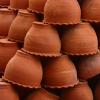
Pot-in-Pot Refrigeration
Source Institutions
In this activity (on page 2 of PDF), learners create a low-tech refrigerator that requires no electricity to keep food from spoiling.
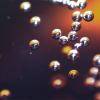
It's a Gas, Man
Source Institutions
In this activity, learners discover if carbon dioxide has an effect on temperature.
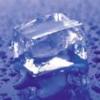
Keep it Cool
Source Institutions
In this activity, learners explore how engineers have met the challenge of keeping foods, liquids, and other items cool.
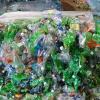
Reusable Rockets
Source Institutions
This activity (located on page 3 of the PDF under GPS: Garbology Activity) is a full inquiry investigation into design optimization using recycled materials.
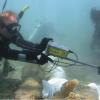
Excavating and Mapping Under Water
Source Institutions
In this archaeology activity, learners consider ways in which excavating an underwater site is different from excavating a terrestrial site.
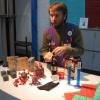
Surface Area
Source Institutions
In this demonstration, learners discover that nanoparticles behave differently, in part because they have a high surface area to volume ratio.
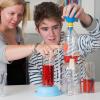
Have a Heart
Source Institutions
Your heart pumps blood throughout your body in one direction, around in a loop. In this activity, learners will make a model of one type of heart chamber called a ventricle.

Space Stations: Sponge Spool Spine
Source Institutions
In this activity, learners simulate what happens to a human spine in space by making Sponge Spool Spines (alternating sponge pieces and spools threaded on a pipe cleaner).
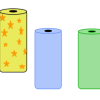
Number Sense and Computation: Soak It Up
Source Institutions
In this math lesson, learners compare products to determine the best product.
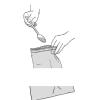
Matter of Degree
Source Institutions
In two separate bags, learners mix water with Epsom salts and detergent.

Disappearing Statues
Source Institutions
In this activity (on page 8), learners model how marble statues and buildings are affected by acid rain.
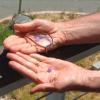
Exploring Ultraviolet (UV) light from the Sun
Source Institutions
In this outdoor activity, learners explore UV rays from the Sun and ways to protect against these potentially harmful rays.

Monitoring Amphibians
Source Institutions
In this field study, learners discover how to collect data in the field and how their efforts can help certain animals, specifically, amphibians.
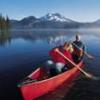
Can You Canoe?
Source Institutions
In this activity, learners explore how engineering has impacted the manufacturing of canoes over time, including the development of new, durable, and lighter materials.
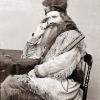
Mountain Man Measurement Rendezvous
Source Institutions
In this math lesson, learners participate in several activities where they apply measurement skills.

Avogadro's Bubbly Adventure
Source Institutions
In this activity on page 7 of the PDF, learners investigate the solubility of gas in water at different temperatures. This experiment will help learners determine if temperature affects solubility.
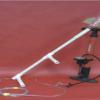
Handheld Water Bottle Rocket & Launcher
Source Institutions
In this activity, learners build handheld rockets and launchers out of PVC pipes and plastic bottles. Use this activity to demonstrate acceleration, air pressure, and Newton's Laws of Motion.
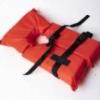
Life Vest Challenge
Source Institutions
In this activity, learners explore the engineering behind life vests or personal flotation devices and the challenges met by these devices.
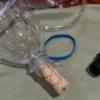
Water Rocket Launch
Source Institutions
In this activity, learners explore rocketry and the principals of space flight.
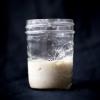
Wild Sourdough
Source Institutions
In this activity, learners explore chemistry and the microbial world by making their own sourdough starter and bread at home using only flour and water.
